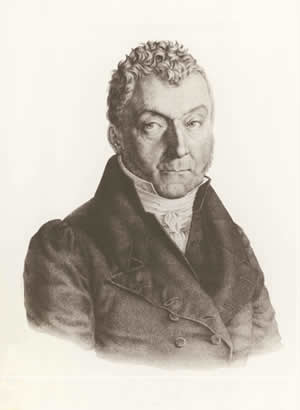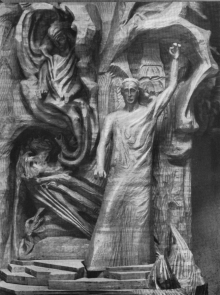Anthroposophy
Anthroposophy is a spiritual movement founded in the early 20th century by Rudolf Steiner. It postulates the existence of an objective, intellectually comprehensible spiritual world accessible to human experience. Anthroposophy is rooted in German idealism and the philosophical work of Johann Wolfgang von Goethe.
History[edit | edit source]
Anthroposophy emerged from the Theosophical Society, with which Steiner was initially involved. In 1912, Steiner broke away from the Theosophical Society to form the Anthroposophical Society. The movement gained momentum in Europe, particularly in Germany and Switzerland, and later spread to other parts of the world.
Philosophy[edit | edit source]
Anthroposophy seeks to apply the clarity of scientific thinking to the realm of the spirit. It emphasizes the importance of spiritual science, which Steiner described as a path of knowledge aiming to guide the spiritual in the human being to the spiritual in the universe. Key concepts include the fourfold human being (physical body, etheric body, astral body, and ego) and the idea of reincarnation and karma.
Applications[edit | edit source]
Anthroposophy has been applied in various fields, including:
- Waldorf education: An educational philosophy that emphasizes the role of imagination in learning and aims to integrate the intellectual, practical, and artistic development of students.
- Biodynamic agriculture: A method of farming that views the farm as a self-sustaining ecosystem and incorporates spiritual and cosmic principles.
- Anthroposophical medicine: A holistic approach to medicine that combines conventional treatments with spiritual insights.
- Eurythmy: An expressive movement art that aims to make visible the invisible forces of speech and music.
Organizations[edit | edit source]
The primary organization for the anthroposophical movement is the General Anthroposophical Society, headquartered at the Goetheanum in Dornach, Switzerland. The Goetheanum serves as a cultural and research center for anthroposophy.
Criticism[edit | edit source]
Anthroposophy has faced criticism from various quarters, including accusations of being pseudoscientific and concerns about its esoteric nature. Critics argue that some of its practices lack empirical support and that its spiritual claims are not scientifically verifiable.
See also[edit | edit source]
- Rudolf Steiner
- Theosophy
- Spiritual science
- Waldorf education
- Biodynamic agriculture
- Anthroposophical medicine
- Eurythmy
References[edit | edit source]
External links[edit | edit source]
Search WikiMD
Ad.Tired of being Overweight? Try W8MD's physician weight loss program.
Semaglutide (Ozempic / Wegovy and Tirzepatide (Mounjaro / Zepbound) available.
Advertise on WikiMD
|
WikiMD's Wellness Encyclopedia |
| Let Food Be Thy Medicine Medicine Thy Food - Hippocrates |
Translate this page: - East Asian
中文,
日本,
한국어,
South Asian
हिन्दी,
தமிழ்,
తెలుగు,
Urdu,
ಕನ್ನಡ,
Southeast Asian
Indonesian,
Vietnamese,
Thai,
မြန်မာဘာသာ,
বাংলা
European
español,
Deutsch,
français,
Greek,
português do Brasil,
polski,
română,
русский,
Nederlands,
norsk,
svenska,
suomi,
Italian
Middle Eastern & African
عربى,
Turkish,
Persian,
Hebrew,
Afrikaans,
isiZulu,
Kiswahili,
Other
Bulgarian,
Hungarian,
Czech,
Swedish,
മലയാളം,
मराठी,
ਪੰਜਾਬੀ,
ગુજરાતી,
Portuguese,
Ukrainian
Medical Disclaimer: WikiMD is not a substitute for professional medical advice. The information on WikiMD is provided as an information resource only, may be incorrect, outdated or misleading, and is not to be used or relied on for any diagnostic or treatment purposes. Please consult your health care provider before making any healthcare decisions or for guidance about a specific medical condition. WikiMD expressly disclaims responsibility, and shall have no liability, for any damages, loss, injury, or liability whatsoever suffered as a result of your reliance on the information contained in this site. By visiting this site you agree to the foregoing terms and conditions, which may from time to time be changed or supplemented by WikiMD. If you do not agree to the foregoing terms and conditions, you should not enter or use this site. See full disclaimer.
Credits:Most images are courtesy of Wikimedia commons, and templates, categories Wikipedia, licensed under CC BY SA or similar.
Contributors: Prab R. Tumpati, MD





